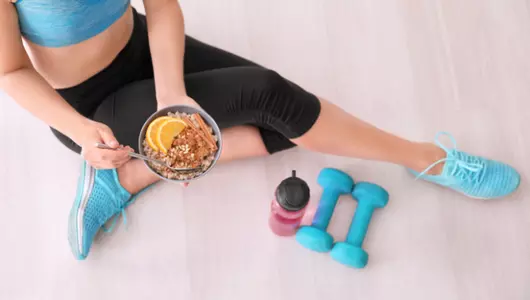There's no shortage of products marketed to boost your immune system - from over-the-counter supplements to guzzling orange juice. Some may help while others can only offer a placebo effect. One thing is for certain: exercise has been proven to support a healthy immune system.
Exercise 101
Let's first go back to the basics of what happens when you exercise. Exercise increases your heart rate, pumping more blood and delivering oxygen to the lungs and other working tissues. This response affects lymph which contains white blood cells and other fluid. Muscle contraction from physical activity and internal movement of blood and lymph occurs when we exercise.
How does exercising help your immune system?
Typically, there are small amounts of immune cells that circulate on a consistent basis throughout the body; by increasing the movement of blood and lymph (which contains white blood cells) through exercise, you are increasing the movement of more immune cells from lymph nodes and the spleen into the bloodstream.
Think of it this way: A store that has one security camera will be limited to catching shoplifters from that one location. A store with security guards walking around will be able to catch shoplifting at many different locations within the store and prevent further shoplifting from happening due to an increased presence. Your immune system works in a similar manner.
Immune cells
Physical activity promotes the movement of the immune system via white blood cells to more locations where viruses and bacteria can be identified.
Not only does exercise get the immune cells moving throughout the body during activity, but it also promotes a lasting presence of these immune cells for up to three hours after exercise is completed. This provides extra time for the immune cells to identify unwanted intruders and keep you from getting sick.
With consistent exercise comes more time for immune cells to patrol the body for bacteria and viruses. Therefore, it's beneficial to get into a routine of moving your body rather than exercising just occasionally.
Exercise doesn't have to mean running or going on a lengthy hike; start small and adjust your routine as needed. Do short bursts of activity throughout your day if you can't do it all at once; some movement is better than none!
Related articles

Protein takeover: How much is really needed per day?

What exercise burns the most calories?

The link between nutrition and your mental health

How much fiber does my child need?

